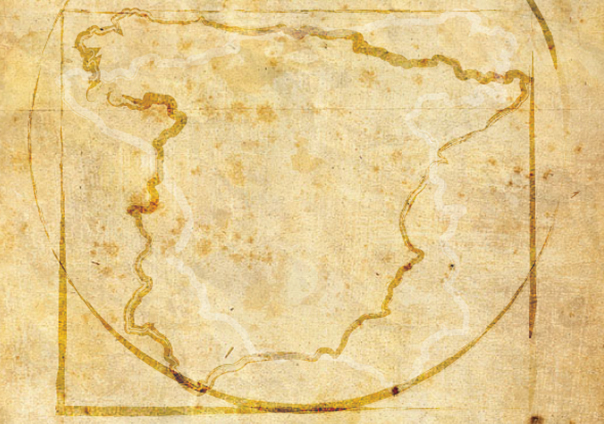Independence of public broadcasting, new public security law among international delegation’s key concerns
Vienna, 23 March 2015 – There is a need to ensure maximum access by the public to the free flow of information according to a report published today by the International Press Institute (IPI) on freedom of expression and the press in Spain, following approval by the Spanish Senate of a controversial new public safety law heavily criticised both in Spain and abroad for its possible effects on journalism.
The report incorporates the findings of a Dec. 2014 international mission to Spain, which was led by the International Press Institute (IPI) and included representatives of Access Info Europe (AIE), the Committee to Protect Journalists (CPJ), the European Federation of Journalists (EFJ), Reporters without Borders (RSF), and the Open Society Foundation (OSF).
The report’s release also comes as Spain prepares for a packed election year, including the first national parliamentary vote following the sudden rise of a number of new political parties and social movements in reaction to the country’s ongoing economic crisis. The wave of elections began yesterday in Andalusia, Spain’s most populous region, where voters selected a new parliament.
– Mission delegates identified the following seven challenges, as covered in the report:
– Threats to the independence of Spain’s public broadcaster (RTVE)
– The lack of a dedicated independent broadcast regulator at the national level
– A need for increased transparency in the allocation of government advertising
– Potentially restrictive new legal norms, including the Public Security Law
– Newly passed transparency legislation that does not meet international standards
– A reported trend among leading public officials of holding “question-less” press conferences
– The continued existence of criminal defamation laws and, in some cases, the application of defamation laws
In addition, the report highlights the effects that Spain’s economic crisis together and the technological revolution have had on the Spanish media. According to both the Madrid Press Association (APM) and the Federation of Press Associations of Spain (FAPE), the economic crisis and above all the “precarious” employment situation faced by journalists, constitutes by far the most significant challenge to the exercise of journalism in Spain.
While concluding that press freedom in Spain “remains robust and certainly comparable to its European neighbours, at such a critical moment for the Spanish public there is a need to ensure maximum access to the free flow of information”.
Indeed, the 50-page report aims to raise awareness of areas in which Spain’s already entrenched guarantees for freedom of expression can be further strengthened, taking into account both the findings of the recent mission as well as relevant international standards on freedom of expression and information.
One such area, according to the report, is Spain’s pending public safety legislation, which RSF Spain states “not only constitutes an assault on freedom of expression but may also lead to censorship”. RSF Spain also highlights a number of recent alleged incidents of physical and legal harassment against Spanish journalists at the hands of security forces, many of which occurred during attempts to cover the actions of social movements.
In a chapter written by the EFJ’s Paco Audije, the report also outlines serious concerns regarding the current direction of Spain’s public broadcaster, which has been criticised internally and externally for steps interpreted as limiting editorial independence. In late January, for instance, RTVE’s governing board ordered the dismissal of its representative at the European Broadcasting Union (EBU) and president of the EBU’s influential News Committee amid news reports the board sought a representative “closer” to its president.
Access Info Europe summarises in the report widespread scepticism toward Spain’s new access to information law, which critics say “does not meet modern standards of transparency” and “lacks ambition”, resulting ain an “old-fashioned law, despite being drafted in the year 2013”.
During the Dec. mission, members of the delegation held over 35 meetings with media, civil society and government actors in both Madrid and Barcelona. The annex to the report contains a full list of meetings, which were arranged with a view toward hearing from as diverse a range of voices as possible. The mission met with key players among Spain’s established media houses, including El Mundo, El País and ABC, while also seeking the views of the so-called medios nativos digitales – new outlets born in the digital ecosystem.
The international delegation’s report comes on the footsteps of a report released by the newly formed Spanish organisation Platform for the Defence of Freedom of Expression (PDLI, according to its Spanish acronym), which likewise identified key concerns in the area of free expression, noting in particular restrictions to digital freedoms.
IPI Interim Executive Director Barbara Trionfi said IPI urged the Spanish government “to consider implementing the more urgent reforms suggested in the report” and called on “all political parties operating during this extraordinarily crowded election year to give space to freedom of expression and the press, and in particular to this report’s recommendations, in their policy manifestos.”
Following the vote in Andalusia, parliamentary votes in most of Spain’s other regions as well as regional elections will take place in May. In September, Catalonians will go to the polls on Sept. 27 amid the region’s intensifying push for independence from Madrid. A date for the national general election has not been set, though is expected to be held toward the end of 2015 or possibly in Jan. 2016.
The IPI report is the first of two reports on press freedom that IPI will release this week. The second, an IPI special report on Turkey titled “Democracy at Risk”, which draws on facts gathered during multiple IPI press freedom missions and visits to Turkey over the last four years, will be released later this week as IPI holds its 2015 World Congress and General Assembly from March 27 to 29 in Myanmar.
You can download the full report here. ![]()
For more information, please contact:
Victoria Anderica | Access Info Europe
victoria@access-info.org +34 91 365 65 58

